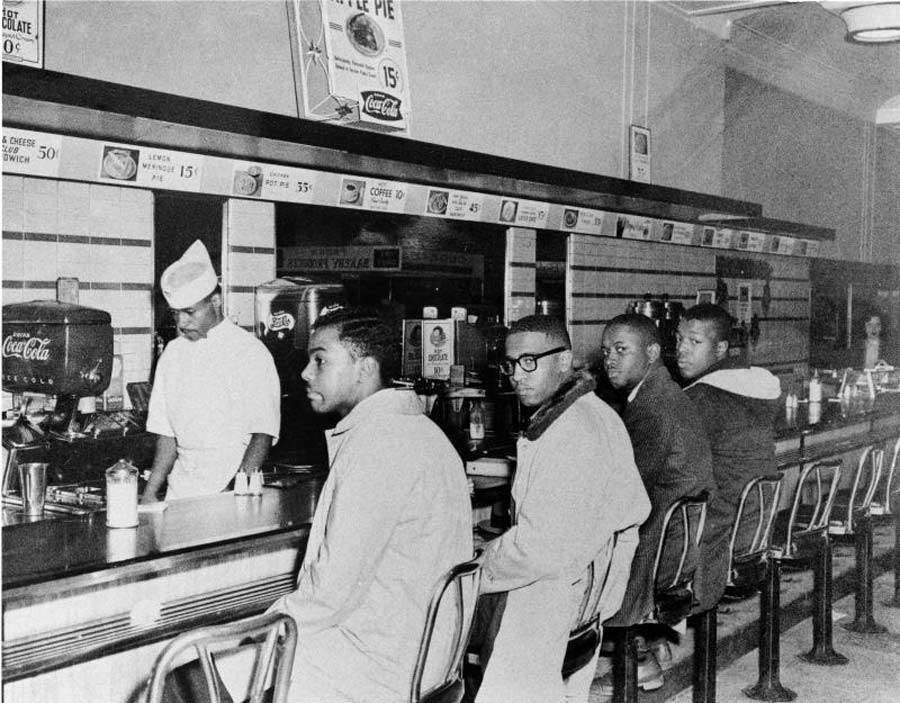Choral director and soloist Van Gilmer has performed, arranged and conducted music for over sixty years. Born and raised in the Jim Crow south of Greensboro, North Carolina, Van’s early encounters with racism helped to shape his activism as a non-violent protestor during the student sit-in movement of the early 1960’s.

A photograph of a protest conducted at a Woolworth’s lunch counter shows a young Van Gilmer amongst the student activists.
Van’s subsequent embrace of the Baha’i Faith in his early twenties marked a shift in his understanding of the transformative potential of unity in diversity. For the first time in his young life, he was exposed to a community of demonstrably, sincerely kind white people who valued his company. The Baha’i community, Van learned, viewed his color as an asset, not a detriment:
The diversity in the human family should be the cause of love and harmony, as it is in music where many different notes blend together in the making of a perfect chord. If you meet those of different race and colour from yourself, do not mistrust them and withdraw yourself into your shell of conventionality, but rather be glad and show them kindness. Think of them as different coloured roses growing in the beautiful garden of humanity, and rejoice to be among them.
Likewise, when you meet those whose opinions differ from your own, do not turn away your face from them. All are seeking truth, and there are many roads leading thereto. Truth has many aspects, but it remains always and forever one.
Do not allow difference of opinion, or diversity of thought to separate you from your fellow-men, or to be the cause of dispute, hatred and strife in your hearts.
Rather, search diligently for the truth and make all men your friends. – Abdu’l-Baha, Paris Talks, p. 52.
Can we apply the test of racial color and say that man of a certain hue—white, black, brown, yellow, red—is the true image of his Creator? We must conclude that color is not the standard and estimate of judgment and that it is of no importance, for color is accidental in nature. The spirit and intelligence of man is essential, and that is the manifestation of divine virtues, the merciful bestowals of God, the eternal life and baptism through the Holy Spirit. Therefore, be it known that color or race is of no importance. He who is the image and likeness of God, who is the manifestation of the bestowals of God, is acceptable at the threshold of God—whether his color be white, black or brown; it matters not. Man is not man simply because of bodily attributes. The standard of divine measure and judgment is his intelligence and spirit. – Abdu’l-Baha, The Promulgation of Universal Peace, p. 70.
Following a distinguished 37-year career in the civil service as an architectural engineer, as the only African American in an office of thirty people, Mr. Gilmer directed the inaugural Baha’i Gospel choir at the Baha’i World Congress in New York in 1992. This historic event marked the first time in Baha’i history that the inspired spiritual musical tradition of the African American south was prominently featured at a major Baha’i event.
In this episode of the America’s Most Challenging Issue podcast, we unpack the life and career of Mr. Van Gilmer, paying particular attention to how his experiences with segregation as a child, and his subsequent acceptance of the Baha’i Faith, helped to frame his understanding of the oneness of humankind and shape his lifelong activism.

Comments
Sign in or create an account
Continue with Googleor